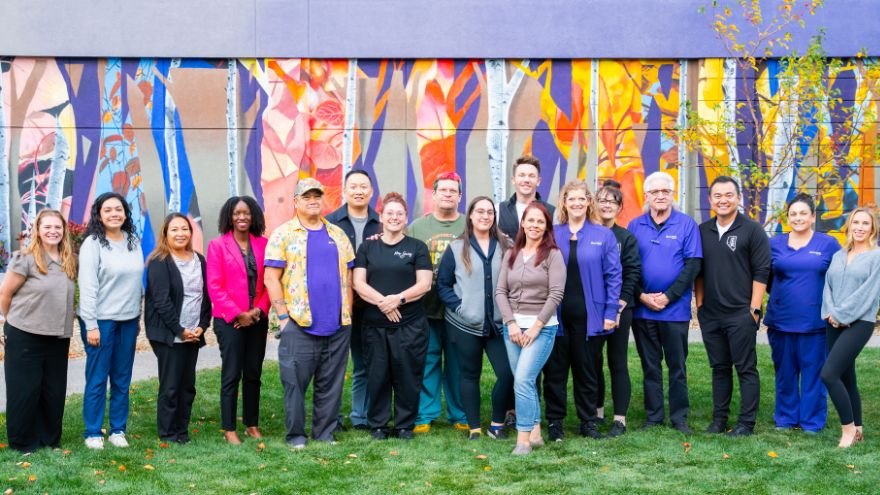

As a society that often feels dominated by the “rise and grind” culture and is still recovering from the effects of the COVID-19 pandemic, feelings of stress, anxiety and depression have risen in recent years. As reported by the American Psychological Association, one-third of adults across the country said they feel completely stressed out no matter what they try to manage it. 36% of adults don’t know where to start regarding stress management.
One way to help bring yourself (and your mental health) peace is by embracing the miles upon miles of nature and forested lands we are fortunate to have right here in northern Nevada. A practice that has gained significant attention in recent years is the Japanese notion of Shinrin-yoku, otherwise known as “forest bathing.”
What is Forest Bathing?
Forest bathing involves spending time in a forest or wooded area while engaging with nature using your accessible senses: touch, sight, smell, taste and hearing. It’s all about being present and mindful in the environment, letting go of distractions and allowing the natural surroundings to “wash” over you (hence the “bathing” part of the name).
Slowing down and reconnecting with the earth are two central principles of forest bathing, from breathing in fresh air and basking in the sun to listening to the sounds of the trees and observing light through the leaves.
Forest bathing doesn’t even necessarily have to happen in a forest. Any local park or garden you have access can offer similar mental health benefits.
What is the Link Between Forest Bathing and Mental Health?
The practice of being in nature and focusing on your surroundings can help reduce symptoms of anxiety, depression and stress. According to Harvard Medical School, spending time in nature and participating in activities like forest bathing for 20 minutes daily can enhance overall well-being.
When we spend time in nature, our cortisol levels (the body’s stress hormone) lower, leading to increased feelings of relaxation. In fact, Harvard Medical School suggests that “exposure to natural tree oils” can help improve mood, reduce blood pressure and relieve anxiety.
The calming, restorative effect of nature can be compared to mindfulness meditation. This practice can help reduce negative thought patterns and improve mental health.
How Can I Practice Forest Bathing to Enhance My Mental Health?
Forest bathing is simple; however, it requires an effort to slow down, be present and engage your senses. Below are some tips from the Nevada Division of Forestry and the Nevada Division of Outdoor Recreation for enhancing your forest bathing experience:
- Find a natural space. Whether it’s a forest, a park, a nature reserve or a garden, the key is to be in a space where you can engage with nature.
- Slow down and breathe deeply. Let yourself be engrossed in the environment.
- Engage all your accessible senses. Take time to observe the details of your surroundings.
- Turn off your electronic devices. This is a time to disconnect from technology and be truly present in the moment.
- Practice gratitude. Take a moment to reflect on the beauty around you and give thanks for the experience.
Need ideas for where to start your forest bathing journey? Visit ForestBathingFinder.com to find an ideal location near you.
Photo by Stephen Leonardi, courtesy of the National Association of State Foresters
Related Blogs


Can Stress and Depression Affect Your Heart? Yes—Here’s How
